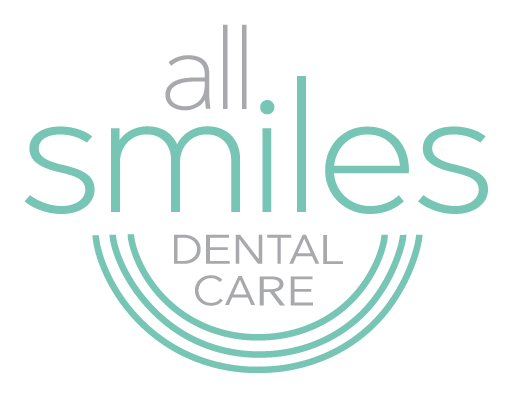What Is Plaque and How Can You Control It?
What Is Plaque and How Can You Control It?
All Smiles Dental Care addresses the best ways to combat plaque. Plaque is one of the most common dental problems that affects millions of people worldwide. Despite its prevalence, many are unaware of how plaque forms, its potential risks, and the steps necessary to prevent it. Understanding and managing plaque is essential to your oral health. We work with you to help prevent serious dental conditions by stopping plaque in its tracks. Reach out to us today to schedule an appointment.

What Is Plaque?
Plaque is a sticky, colorless or pale yellow film of bacteria that constantly forms on the surface of your teeth. It develops when bacteria in your mouth interact with sugars and starches from the food and drinks you consume. Plaque is a primary cause of common dental issues like cavities, gum disease, and bad breath.
Tartar vs. Plaque
At its core, tartar is hardened plaque. Plaque hardens into tartar when it isn’t removed through proper oral hygiene and professional dental cleanings. Tartar is much more challenging to remove and can lead to significant dental health concerns. Tartar can only be professionally removed with special dental tools. This dental calculus is sometimes yellow or white at first then turns the color of the substances you consume. It’s essential to remove plaque before it turns into tartar.
Why Is Plaque Harmful?
Plaque is harmful because it serves as a breeding ground for bacteria. Tooth enamel begins to erode from the acids produced by these bacteria, quickly leading to cavities and tooth decay. Plaque buildup along the gumline can also cause irritation and inflammation, which are early warning signs of gum disease, such as gingivitis. Left untreated, more advanced conditions like periodontitis may develop, potentially causing tooth loss and damage to surrounding bone structures.
How to Control and Prevent Plaque Buildup
To keep plaque under control, practicing good oral hygiene is crucial. Some of the best ways to prevent plaque buildup include:
- Brush your teeth at least twice a day using fluoride toothpaste.
- Floss after eating to remove stuck food particles and plaque.
- Attend routine dental check-ups and get professional dental cleanings for proper tartar removal.
- Limit sugary and starchy foods and drink plenty of water to further help reduce plaque formation.
Common Myths About Plaque
There are many misconceptions about plaque that can lead to poor oral hygiene choices. For instance, some believe that only sugary snacks cause plaque, while in reality, all carbohydrate-rich foods can contribute to its formation. Others assume that mouthwash alone can eliminate plaque, but mechanical cleaning through brushing and flossing is essential. Dispelling these myths is key to maintaining proper oral health practices.
Signs You May Have Plaque Buildup
It’s vital to know the signs of plaque to know when it’s time to step up your dental routine. If left untreated, these signs can progress to more serious conditions, requiring professional intervention. The typical signs of plaque buildup include
- Bad breath.
- Bad taste in your mouth.
- A fuzzy feeling on your teeth.
- visible discoloration or buildup at the gumline.
- Early gum inflammation, such as redness or bleeding gums.
How Do Dentists Treat Plaque?
During a dental checkup, our dental team uses specialized dental tools to remove plaque and tartar buildup from your teeth. Additionally, we may recommend several preventive and treatment options to maintain oral health, including:
- Dental Sealants: We can place dental sealants to protect the chewing surfaces of your teeth and prevent plaque from forming.
- Dry Mouth Treatments: Dry mouth treatments stimulate saliva production, which naturally helps wash away food particles and bacteria.
- Fluoride Treatments: These treatments slow the growth of bacteria that cause plaque and reduce the risk of cavities.
- Prescription Products: We can prescribe high-strength toothpaste or antibacterial mouthwashes to target plaque and improve oral hygiene.
The Role of Professional Dental Care in Plaque Control
Professional dental care is the best way to manage plaque. Our dental team performs professional cleanings to remove stubborn tartar and offers personalized advice on improving your oral hygiene routine. Professional care ensures your teeth and gums remain healthy, reducing the risk of long-term dental problems.
Tips for Kids and Seniors to Control Plaque
We can help kids and senior citizens control plaque. For kids, we recommend the following:
- Make brushing fun by using flavored toothpaste or colorful toothbrushes with their favorite characters.
- Encourage proper brushing technique by supervising and guiding them, ensuring they brush for 2 minutes twice daily.
- Limit sugary snacks and drinks.
- Introduce flossing with child-friendly flossers to make the habit easier to adopt.
For seniors, we recommend the following:
- Use electric toothbrushes or toothbrushes with soft bristles to avoid discomfort and ensure effective cleaning.
- Stay hydrated to combat dry mouth, which can increase plaque buildup.
- Choose denture-friendly cleaning aids if wearing dentures to maintain oral cleanliness.
- Schedule more frequent dental check-ups if needed to monitor oral health and receive professional plaque removal.
Contact All Smiles Dental Care
All Smiles Dental Care offers complete dental services for your oral health. We understand plaque buildup is a preventable yet impactful issue that can significantly affect your oral health when left unmanaged. Adopting effective daily habits, seeking regular dental care, and addressing common misconceptions can protect your teeth and gums against plaque-related damage. Take control of your oral health today. Schedule a dental check-up with our team.
Frequently Asked Questions
- What causes dental plaque? Plaque is caused by bacteria interacting with sugars and starches from food and drinks.
- How can I remove plaque from my teeth at home? You can remove plaque at home by flossing regularly, brushing your teeth after eating, and using mouthwash to reduce bacteria.
- Can plaque lead to gum disease? Yes, if plaque is not removed, it turns into tartar that can lead to gum diseases such as gingivitis and periodontitis.
- How often should I see a dentist to manage plaque? It’s recommended to see your dentist every six months for professional cleanings and preventative care.
